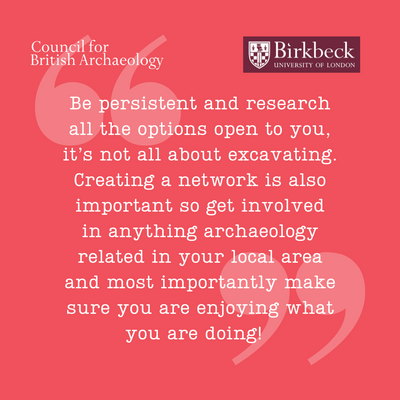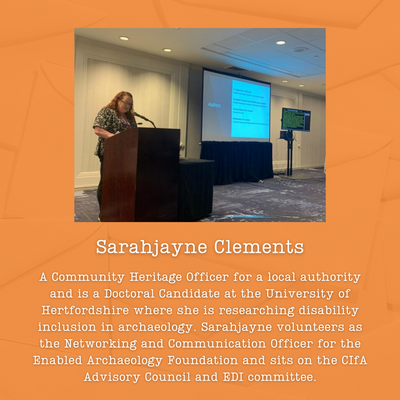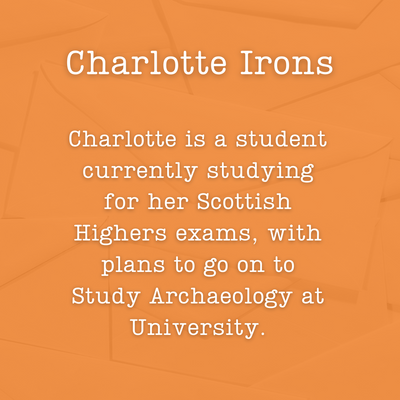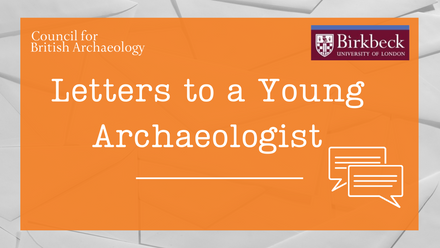Letter to a Young Archaeologist September 2023

Dear Young Archaeologists,
We are the Enabled Archaeology Foundation (EAF), and our mission is to empower, enable and combat negative attitudes towards the involvement of disabled people in heritage. We work as a group to speak at conferences, publish papers and train organisations to achieve our goals as a charity. Last year we even partnered with other organisations to run an accessible excavation.
Our roles outside of the EAF are varied and we are at different points in our careers. Some of us have disabilities and some of us do not but we all have something in common in that we love archaeology and are passionate about making positive changes to the sector. We have all taken different paths in our career journeys and you will find there are many different paths that you can also pursue: from a Zooarchaeologist who studies animal remains to an Archaeological Illustrator, there are lots of options open to you.
On our committee we currently have two University lecturers, a community heritage officer and doctoral student, a freelance finds consultant, a post-doctoral researcher, a student, and a chartered management accountant. We also have a group of Trustees to guide us in our practice and decision making who have a wide range of experience we can draw on such as commercial archaeology, academia, and community archaeology.
Many of us have faced barriers to working in archaeology or are currently experiencing them. Breaking barriers is something we are constantly working to address so that archaeology becomes an inclusive place for everyone. We need young people like you, with exciting ideas to join us as archaeologists to make the sector a better place for all.
Our advice to young people aspiring to be archaeologists is to be persistent and research all the options open to you, it’s not all about excavating. Creating a network is also important so get involved in anything archaeology related in your local area and most importantly make sure you are enjoying what you are doing!
What does inclusive archaeology look like? It could be anything from making a site accessible to making an event or a website accessible. The most important thing is to ask a person about their needs and listen.
If you would like to get in contact with us or find out more about what we do, please see our website: Enabled Archaeology Foundation – empowered | enabled | archaeology

I've always loved learning about history. By the time I was 9 I was already doing research on the-Pictish era for a writing competition on the Rosemarkie man that I took very seriously! I never thought about archaeology specifically as a job until a few years ago. I love the idea of piecing together the past through tiny glimpses into what it would have looked like. Human history is fascinating, especially combined with the history of everything that evolved with us. The more I thought about it the more right it sounded.
However, when I developed FND, or Functional Neurological Disorder, I thought I would never be able to become an archaeologist, and especially to go on professional digs. It varies from person to person but with me I can have episodes of difficulty processing things and limb weakness or paralysis. But after reaching out and talking to people I am so happy to think I can actually do this. I have now volunteered on two digs and counting, and have spent the day with a group surveying with LIDAR Everyone I have met has been so friendly and encouraging. It will be harder, I know that. but there is support out there that can get me where I want to go. One day I will be able to conduct my own research on my own dig site.





